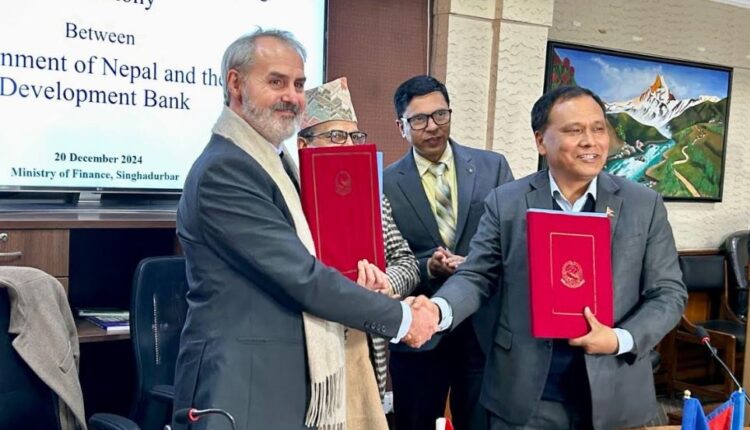72 billion and 93 crore rupees assistance in improvement of electricity transmission and distribution system
Kathmandu. Support has been gathered to expand, improve and modernize the transmission and distribution system to make electricity supply reliable and quality within the country and to expand electricity trade with neighboring countries. An investment of about 72.93 billion rupees (537 million US dollars) has been provided for this.
The Asian Development Bank (ADB) will provide a concessional loan of 31.1 million dollars (42.24 billion rupees) and a grant of 30 million dollars (4.7 billion rupees).
The European Union will provide a grant of 22.6 million dollars (3.6 billion rupees) and the Government of Norway will provide a grant of 31 million dollars (4.21 billion rupees).
$10 million (1.35 billion rupees) will be provided through the Strategic Climate Fund. The Government of Nepal will bear the remaining $132 million (17.98 billion rupees) required for the implementation of the project.
The projects implemented through ADB’s South Asian Subregional Economic Assistance (SASEC) Power Transmission and Distribution Strengthening Project will mainly include the construction of 290 kilometers of transmission lines, five new substations, and the upgrading of two substations.
By removing the single phase meters in the homes of the household customers in Kathmandu Valley, smart meters will be connected (second phase), distribution substations will be modernized and automated, computer-based supervisory control and data acquisition (SCADA) will be connected, the national transmission line will be built in Karnali province and the distribution system will be upgraded.
It is mentioned in the press note issued by the authority that a concessional loan and grant agreement has been signed between the government, ADB and Nepal Electricity Authority last Friday for the mobilization of assistance. The plans will be implemented by the Nepal Electricity Authority. The plans will be implemented by the NEA.
Executive Director of NEA, Kulman Ghising, said that the necessary infrastructure will be built as a backbone to improve and expand the power supply system within the country, make regional/subregional power trade reliable, and digitize the distribution system.
“A large amount has been collected to address the consumer’s complaints of power outages from time to time and to implement the improvement and strengthening of the infrastructure structures planned from previous years for sufficient, reliable, quality and safe power supply, now the plans will be implemented immediately”, Executive Director Ghising said

